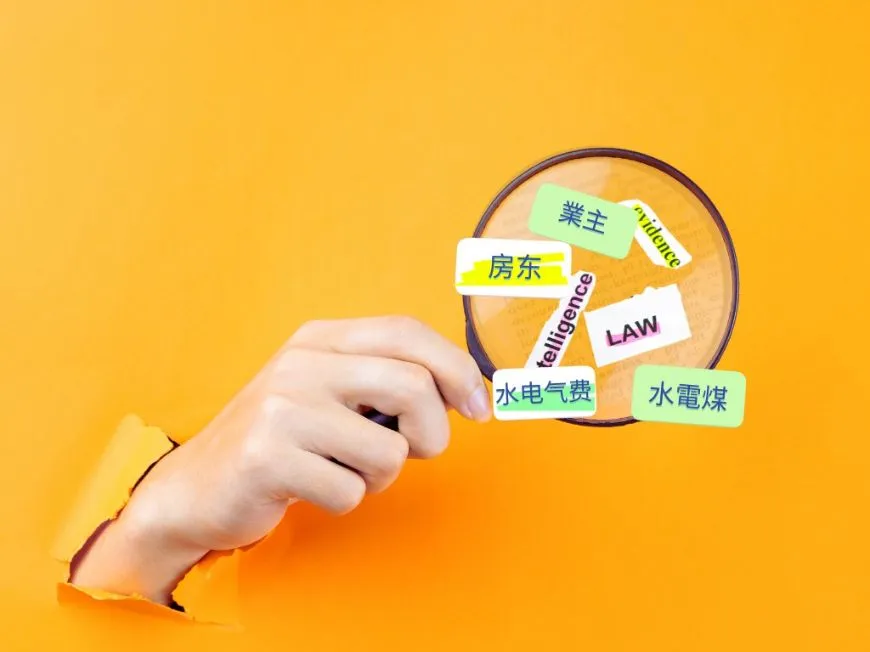A Guide to Understanding HK Rental Terminology for Expats
3 minutes
If you're an expatriate from Mainland China newly arriving in Hong Kong, one of the most perplexing aspects of the rental process may be the local real estate terminology. Unlike in Mainland China, Hong Kong has its own set of terms, and being unfamiliar with them can lead to confusion or miscommunication when dealing with real estate agents or landlords. This guide aims to help you understand some of the most commonly used rental terms in Hong Kong, compare them with their Mainland counterparts, and make your rental experience smoother and more efficient.
| English | Hong Kong | Mainland | Explanation and Differences |
|---|---|---|---|
| Real Estate Agent | 地產代理/Agent | 中介 | In Hong Kong, real estate agents must hold a professional license to assist with property rentals. |
| Renting Property / Renting a House | 租樓/租屋 | 租房 | While Mainland China commonly uses the term "租房" for renting a property, in Hong Kong, "楼" (building) and "屋" (house) are the standard terms. |
| Commission | 佣金 | 中介费 | Real estate agents in Hong Kong usually charge tenants a commission equivalent to 50% of one month's rent for their rental services. |
| Square Foot | 平方呎 | 平方米 | 1 square meter equals approximately 10.764 square feet. It's important to note this difference when reviewing the size of a property. |
| Value-for-Money Property | 筍盤 | 性价比高的房子 | "筍盘" refers to a property that offers excellent value for money—well-priced and in good condition, often in high demand in the market. |
| Pay Stamp Duty / Stamping of Lease | 打釐印 | 缴纳印花税 | After signing the lease, the contract must be submitted to the tax bureau for stamp duty within 30 days, and both parties receive a stamp certificate. |
| Two Months Deposit and One Month Rent in Advance | 雙倍按金/兩按一上 | 押二付一 | This refers to a standard rental requirement in Hong Kong, where the tenant must pay two months' rent as a deposit and one month’s rent in advance. |
| Deposit | 按金 | 押金 | The deposit is typically refunded when the lease ends, assuming no damages or outstanding issues with the property. |
| Ready-to-Move-In Property | 現樓 | 现房 | "现楼" refers to a property that is ready for immediate occupancy, i.e., it has been completed and is available for tenants to move in. |
| Utilities (Water, Electricity, Gas) | 水電煤 | 水电气费 | These are the utility costs for water, electricity, and gas, which tenants typically pay directly. It's crucial to clarify payment arrangements with the landlord. |
| Landlord | 業主 | 房东 | The "landlord" or "property owner" in Hong Kong who rents out the property. |
| Subdivided Unit | 劏房 | 隔断房 | "劏房" refers to subdivided units, where larger apartments are split into smaller living spaces for rent, often at lower prices but with less space. |
| Vacant Property | 吉房 | 空房 | "吉房" refers to an empty or vacant property in Hong Kong, commonly used to describe a unit that is unoccupied and ready for rent. |
| Sign the Contract / Lease Agreement | 簽約 | 签合同 | In Hong Kong, the term "contract" is often referred to as "合约" (He Yue), which indicates a more formal lease agreement process. |
How many rental-related terms have you learned? If you find these terms helpful or have more questions you'd like to explore, feel free to contact us anytime!




